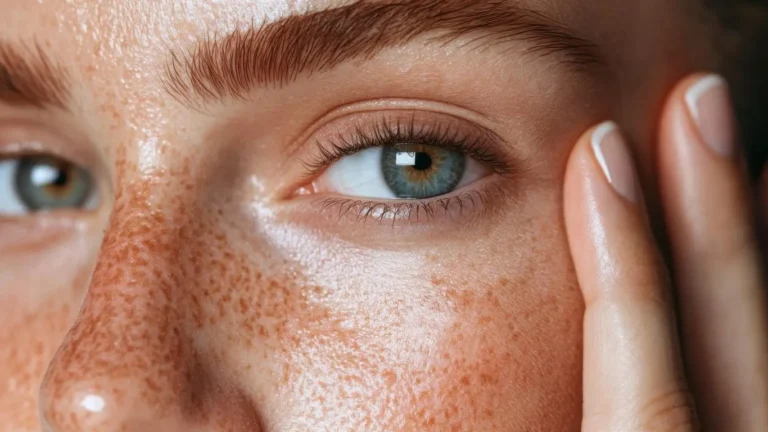How GERD Affects Sleep Quality and What You Can Do About It
Ever lie down at night, just hoping for a peaceful sleep, only to be jolted awake by that burning sensation creeping up your chest? Yep, been there. For years, I thought I just had “bad digestion” — until one night I ended up sleeping practically upright with a pillow fortress around me. Turns out, GERD and sleep have a messy, intertwined relationship that many of us underestimate. If your nights are becoming a battlefield thanks to reflux, you’re not alone. Let’s talk about how GERD affects sleep quality and what you can do to reclaim those precious zzz’s.
Why GERD Symptoms Often Worsen at Night

Gravity is your friend during the day. But the moment you lie down, it turns on you. When you’re upright, gravity helps keep stomach acid where it belongs — in your stomach. But as soon as you stretch out in bed, that acid can travel up into your esophagus. This is one reason why nighttime GERD feels so much worse.
Reduced Saliva and Swallowing Reflex
Fun fact: we produce less saliva when we sleep. Saliva helps neutralize acid, and swallowing helps push that acid back down. So when both slow down during the night, acid reflux becomes more aggressive.
Lower Esophageal Sphincter (LES) Relaxation
The LES is a tiny valve with a big job — keeping stomach contents from refluxing. But it tends to relax at night in some individuals, especially after large meals or alcohol, making acid sneak up even easier.
Common Sleep Disturbances Caused by GERD

If you have GERD, chances are your sleep isn’t just interrupted — it’s sabotaged. Here are some ways GERD creeps into your night and ruins your rest:
- Heartburn and chest discomfort that jolts you awake.
- Chronic coughing or throat clearing, especially when lying down.
- Regurgitation — that awful feeling of stomach contents making a comeback.
- Breathing difficulties caused by acid reaching the airways, triggering conditions like asthma or chronic cough.
According to the National Library of Medicine, around 75% of people with GERD experience nighttime symptoms, and nearly half report disrupted sleep. That’s a lot of tossing and turning.
How Poor Sleep Worsens GERD

Here’s where things get cyclical — and frustrating. GERD disrupts your sleep, but then poor sleep can also make GERD worse. How?
- Increased stress and cortisol: Poor sleep triggers stress hormones, which can exacerbate inflammation in your gut.
- Sluggish digestion: Lack of restorative sleep slows your entire digestive process, increasing reflux risk.
- Increased perception of pain: You’re more sensitive to discomfort when you’re sleep-deprived.
Not surprisingly, GERD is strongly tied to other sleep disorders, especially sleep apnea. It’s one of those chicken-and-egg scenarios that can trap you in a loop.
Bedtime Habits That Might Be Making GERD Worse

Before I got serious about managing my reflux, my nighttime routine was a GERD disaster: late-night spicy snacks, binge-watching with a slouched posture, and flopping straight into bed afterward. Turns out, these habits can wreak havoc on your esophagus.
Here’s what to avoid within 2–3 hours before bed:
- Heavy or greasy meals
- Spicy or acidic foods (think tomatoes, citrus, chili)
- Caffeine and chocolate
- Alcohol
- Carbonated drinks
These can all trigger LES relaxation or increase stomach acid. If you’re prone to night reflux, skipping that slice of pizza at 10pm may be more effective than any pill.
Instead, opt for lighter evening meals with whole grains, lean proteins, and low-acid veggies. Even simple swaps like chamomile tea instead of wine can work wonders.
Why Sleep Position Matters (A Lot)

One of the most surprising (and affordable) tweaks I made was simply changing how I sleep. I’d heard that your left side is the magic side — and research agrees. According to the Mayo Clinic, sleeping on your left side helps reduce reflux episodes. Why? It positions the stomach lower than the esophagus, making it harder for acid to climb upward.
Try these positioning tips:
- Sleep on your left side – It’s a small shift that makes a big difference.
- Elevate your upper body using a wedge pillow (not just your head).
- Don’t lie flat after eating — walk, stand, or sit upright for at least 2–3 hours.
Pro tip: If you’re a back sleeper like I used to be, adjusting to side-sleeping can take time. I trained myself by tucking a pillow behind my back and another between my knees. Total game-changer.
Want a deeper dive into managing GERD with daily lifestyle changes? I highly recommend reading this guide on GERD lifestyle changes — it’s loaded with strategies that actually helped me feel human again.
Natural Remedies That May Support Better Sleep with GERD

Let’s be real — nobody wants to pop antacids like candy just to get through the night. When I first started experiencing sleep issues from reflux, I turned to some gentle, natural options, and I was surprised at how much they helped.
Some remedies worth exploring:
- Chamomile tea: Soothes the digestive tract and promotes sleep. I drink it an hour before bed — not too hot, not too much.
- Slippery elm or licorice root (DGL): These herbal supplements create a coating effect in the esophagus, helping reduce irritation.
- Melatonin: It’s more than a sleep hormone. Some studies suggest it might strengthen the LES — the muscle that guards your esophagus. Here’s a full guide on melatonin and nighttime heartburn.
Always double-check with your doctor before trying supplements — especially if you’re already taking medications. That’s something I learned the hard way when mixing licorice extract with my proton pump inhibitors (spoiler: not ideal).
When to Talk to Your Doctor About GERD-Related Sleep Issues

If occasional nighttime heartburn turns into a nightly war zone, it’s time to call for backup. In my case, waking up 3–4 times per night wasn’t just annoying — it was affecting my mood, energy, and even appetite.
You should definitely talk to your healthcare provider if:
- You have frequent heartburn more than twice a week
- You’re relying heavily on OTC antacids just to sleep
- You’re noticing other symptoms like hoarseness, chest tightness, or wheezing
- You have difficulty swallowing, unintentional weight loss, or blood in stool
Long-term, unmanaged GERD can lead to esophagitis or Barrett’s esophagus, and that’s not something you want to mess with. Nighttime symptoms, in particular, are strongly linked to complications if left untreated, according to the National Institute of Diabetes and Digestive and Kidney Diseases (NIDDK).
Creating a GERD-Friendly Sleep Routine

Getting back to consistent, comfortable sleep with GERD isn’t just about avoiding tomatoes and sleeping on your left side (though those help). It’s about building a whole new bedtime ritual — one that works with your gut, not against it.
Here’s what works well for me (and many others):
- Finish dinner at least 3 hours before bed. I aim for 6:30–7 pm if possible.
- Do some gentle movement after eating: Even a 10–15 minute walk helps digestion.
- Stick to a wind-down routine: Dim lights, no screens, warm bath, and chamomile tea.
- Use a wedge pillow or incline the bed: Elevating the torso helps prevent nighttime reflux.
- Avoid triggering foods late in the day: Especially spicy, fried, or acidic snacks.
If you’re looking for low-acid snacks that won’t mess with your sleep, I really like these GERD-friendly snack ideas. Having a light banana or plain rice cracker around 8pm doesn’t upset my system and keeps late-night hunger at bay.
Medications and Sleep: What to Know If You’re on GERD Treatment

If you’re on meds like PPIs or H2 blockers, how and when you take them can make a huge difference. I used to take my PPI at night — big mistake. My GI doctor told me to take it 30–60 minutes before my first meal of the day for best results. Who knew?
Some helpful tips if you’re using medication:
- Timing matters: Take PPIs before eating — they don’t work well without food stimulation.
- Don’t double-dose without supervision: More meds ≠ more relief.
- Be consistent: Missing a dose can lead to rebound acid production.
If your current medication isn’t helping your sleep or symptoms at night, it may be time to ask about switching to a different class, or considering nighttime adjuncts like alginate-based therapies (like Gaviscon), which form a raft barrier over stomach acid.
There’s a great overview on the available treatments in this guide to effective GERD treatments — it helped me understand the options far better than just Googling random drug names.
Addressing Sleep Apnea and GERD Together

One last thing — if you snore loudly, gasp for air during sleep, or wake up feeling like you haven’t slept at all, you might want to explore the sleep apnea connection. Sleep apnea and GERD are BFFs in the worst way possible. When your airway collapses during apnea episodes, pressure builds up in the abdomen and can push acid into the esophagus.
If I hadn’t done a sleep study, I’d have never known that my night reflux and mild apnea were feeding into each other. Since starting CPAP therapy, not only do I snore less (my partner is thrilled), but my reflux has also chilled out a bit.
You can learn more about this tricky link in this GERD and sleep apnea article.
Getting a good night’s sleep with GERD is possible — it just takes the right mix of smart habits, lifestyle shifts, and sometimes a little help from science. Trust me, once you wake up without that sour taste in your throat, you’ll never want to go back.

Camellia Wulansari is a dedicated Medical Assistant at a local clinic and a passionate health writer at Healthusias.com. With years of hands-on experience in patient care and a deep interest in preventive medicine, she bridges the gap between clinical knowledge and accessible health information. Camellia specializes in writing about digestive health, chronic conditions like GERD and hypertension, respiratory issues, and autoimmune diseases, aiming to empower readers with practical, easy-to-understand insights. When she’s not assisting patients or writing, you’ll find her enjoying quiet mornings with coffee and a medical journal in hand—or jamming to her favorite metal band, Lamb of God.







